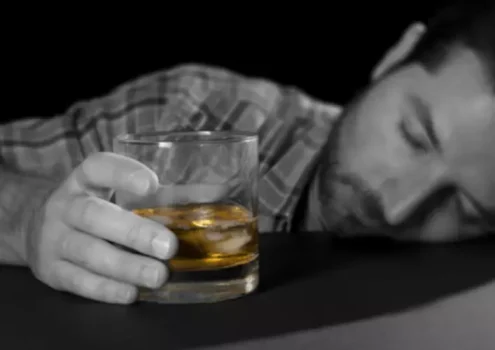
The prospective design illuminates how spiritual struggle in response to a trauma, as compared to a non-traumatic stressful event, relates to the development and maintenance of PTSD symptoms. Specifically, struggle and its separate components are investigated as potential mediators of the relationship between trauma and PTSD. The analyses control for pre-event PTSD symptoms to allow for examination of change in PTSD symptoms in response to the index event. When you ask them to describe what they mean by that statement, they seem to have a firm grasp on the fact that we alcoholics suffer from “an allergy of the body and an obsession of the mind” — that once I put any alcohol in my system whatsoever it sets off a craving for more alcohol. When you ask them to describe what they mean by that statement, they seem to have a firm grasp on the fact that we alcoholics suffer from “an allergy of the body and an obsession of the mind” — that once I put any alcohol in my system whatsoever it sets off a craving for more alcohol. While we believe that the present study represents an important contribution to our understanding of the intersection of trauma and spirituality, particularly given the paucity of information on this topic, it has limitations that must be considered.

Tap into your inner source of power and keep moving forward

That is why they say “Higher Power of your understanding” rather than God. Unless, we let Go and Let God and ask God to remove these negative emotions/sins/defects of character we end up in a futile increasingly distressed spiral of negative emotions. I can manage my spiritual malady or emotional dysfunction, I have the tools to do so. In Grace we can still experience negative emotions but God allows us to see them for what they are and not react.
Tips for Healing Emotional Wounds
The huge burden that humans bear is the ability to contemplate our own annihilation—death. This biases our system towards threat physiology and plays a significant role in our health and wellness. As we are an inherently spiritual species, we frequently fear a spiritual death as much as a physical death. Failure to recognize the effects of all of our existential worries, big and small, leads to all kinds of mishaps and trouble for our species.
- It takes rigorous honesty, and it might require a lot of digging and peeling away of layers to start uncovering things.
- Prior studies have not assessed subscales of spiritual struggle separately to isolate possible differences in relationships with PTSD symptoms, and subtle differences exist among expressions of spiritual struggle, which may result in unique relationships with PTSD symptoms.
- It may be that attributing the event to evil forces provides an unsettling but satisfactory explanation for some trauma survivors, perhaps because it distributes blame away from self or God to a being already understood as malevolent (e.g., Pargament et al., 2004).
- Now, the mental obsession is how our minds have been conditioned to crave alcohol and preferred illicit substances.
- Same thing with alcohol; some people can have a couple beers, no problem.
- Just because we may have had a shitty day thus far doesn’t mean that it has to continue in that direction.
Support Our Work
In The Big Book of AA, the 12 steps outlined are a formalized approach to achieving this transformational change. When these physical, mental, and spiritual components come together, an individual with alcohol use disorder will be rendered powerless to arrest a vicious cycle of obsessions, cravings, and alcohol abuse. The great psychiatrist Carl Jung called this a ‘low level thirst for wholeness – for union with God’. In our addictions, we tried to quench our soul-thirst with fleeting pleasures. The pursuit of them dominated our lives, destroyed relationships, and caused greater desperation than we ever thought possible. In these times personal threat load is extremely high and is being reflected in systemic dysfunction.
Differences by Trauma group
This spiritual malady, or spiritual disconnection, is the driving force behind our addiction and self-destructive behaviors. Without addressing this spiritual malady, we have absolutely no hope for intrinsic change or recovery. It is this notion that the fellowship of AA was founded upon, and how millions of recovered alcoholics equate their success in overcoming a seemingly hopeless situation. The only solution to a spiritual malady is a spiritual awakening. Only once we open the spiritual channels and begin to accept a Higher Power into our lives can we hope to find a solution to our alcoholic condition.
Signs You Have Complicated Grief (a Spiritual Malady)

Like negative post-traumatic cognitions about the self, others, and the world, the construct of spiritual struggle represents negative religious cognitions about the self, God, and the world, and may thereby lead to PTSD symptoms. Spiritual struggle consists of maladaptive religious cognitions about the cause of, responsibility for, and future implications of stressful events, paralleling secular cognitions known to be factors in the development and maintenance of PTSD symptoms (e.g., Brewin & Holmes, 2003). In fact, spiritual struggle has been linked to PTSD symptoms in a variety of trauma-exposed samples (e.g., Aflakseir & Coleman, 2009; Conners, Whiteside-Mansell, & Sherman, 2006; Harris et al., 2008); however, knowledge in this area thus far is limited to cross-sectional findings.

Spiritual struggle may relate to PTSD symptoms in complex ways, a consideration for future research evaluating causal direction. For instance, negative appraisals of the trauma could lead to initial symptoms of PTSD, and negative religious appraisals of the PTSD symptoms themselves could relate to their long-term maintenance. In support of the latter notion, theorists have speculated that psychopathology could impair religious functioning and give rise to spiritual struggles (Hill & Kilian, 2003). Although the present study may provide a window through which to view relations between religious cognitions and PTSD symptoms, they may be very different for a sample of combat-exposed veterans who go on to develop chronic, debilitating PTSD. Many theories of PTSD share the premise that PTSD symptoms are caused and maintained by a person’s cognitive efforts to cope with the traumatic event (Keane, Fisher, Krinsley, & Niles, 1994). For example, information processing theories implicate faulty processing of and cognitions about the trauma memory in the development and maintenance of PTSD (Foa & Kozak, 1986; Resick & Calhoun, 2001).
Trauma and PTSD Symptoms: Does Spiritual Struggle Mediate the Link?
Complicated and long-lasting grief goes much deeper than that – at its core, it’s to do with your Soul which is also known as your True Nature. Another way to address the spiritual malady and heal in Glenwood Springs is to connect to some of its amazing recovery communities. This includes 12-Step communities that offer meetings that can help people discover what spirituality means to them.
McMindfulness: How Mindfulness Became the New Capitalist Spirituality – Psychotherapy.net
- This will allow them to undergo the required shift in thought that will free them from their addiction.
- In fact, they may tense up when they hear words like “God” and “spirituality.” This reaction may cause them to remember a past negative experience – an episode in their life that may cause them to recall a traumatic event they’d sooner rather forget.
- I breakdown still when I think about it and blame myself for what happened.
- Most often, religious meaning systems provide a helpful vehicle for making sense of seemingly random, nonsensical, or tragic events, by seeing them as part of a larger, more benign plan (Frazier et al., 2004; Pargament, 1997).